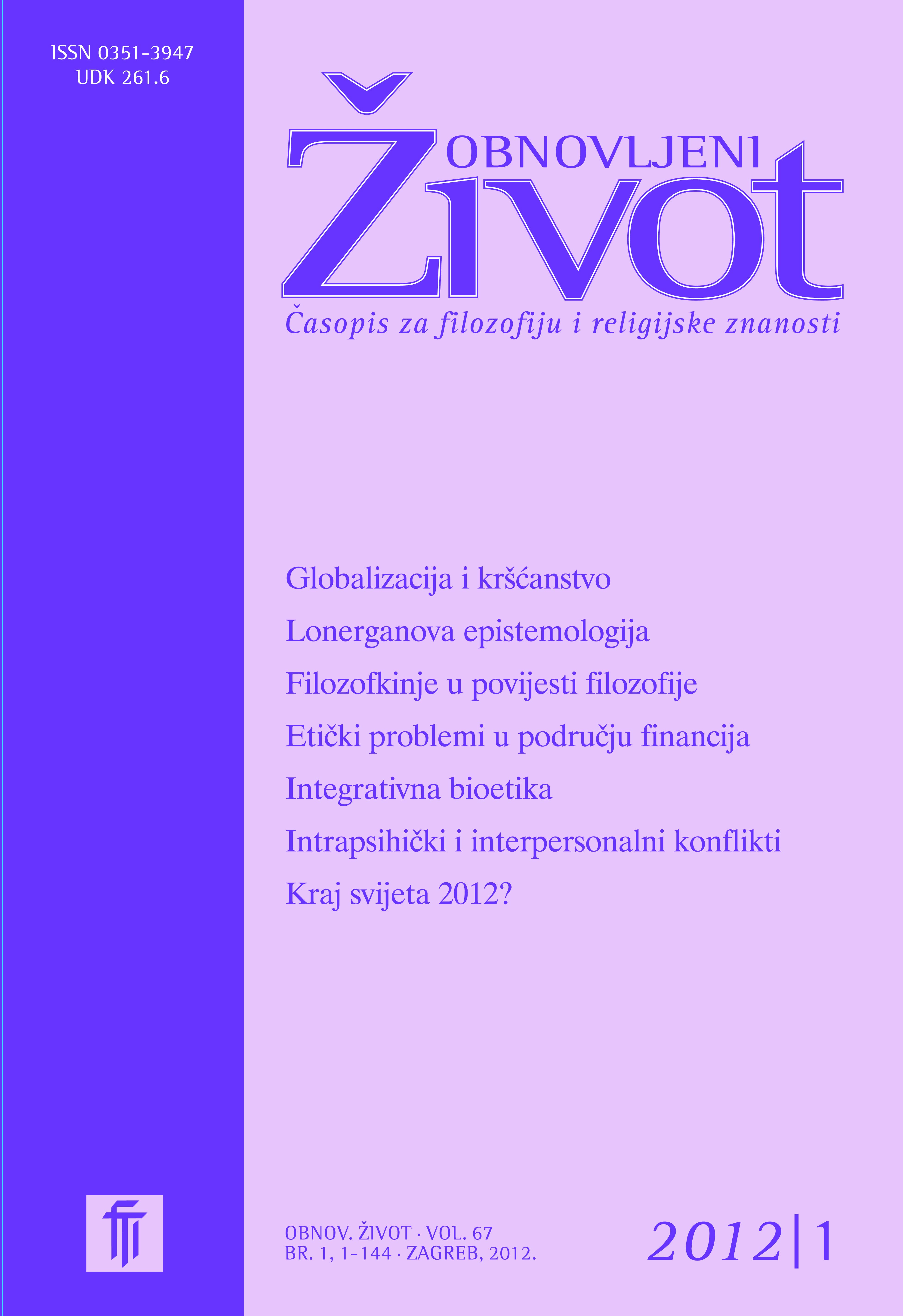Lonergan's Epistemology in an Analytical Context
Keywords:
Bernard Lonergan, virtue epistemology, intellectual virtues, epistemic responsibility, transcendental methodAbstract
In this essay the author analyses Bernard Lonergan's theory of knowledge with the aim of its reconstruction and contextualization in terms of contemporary analytical epistemology. According to Lonergan's model of epistemic justification, justification is a function of the reflective understanding of the virtually unconditional. At the centre of justification is the authentic subject. Authenticity is defined by the relationship between epistemic responsibility and self-transcendence driven by the pure desire to know, or rather by the normativity which is inherent to that desire. This subjective pole of justification is at the same time the basis for understanding the objective pole, i.e. the reliability of cognitive operations in warranting the truth of beliefs, and that happens through the transcendental notion of being which is grasped as the heuristic limit of the desire to know. Thus Lonergan, through the subject's virtuous dispositions, makes the connection between the successful acquisition of knowledge and individual merit in the acquisition of knowledge. The article suggests that Lonergan's epistemology is best understood as a form of responsibilist virtue epistemology.
Downloads
Published
Issue
Section
License
Jednom prihvaćeni članak obvezuje autora da ga ne smije objaviti drugdje bez dozvole uredništva, a i tada samo uz bilješku da je objavljen prvi put u Obnovljenom životu. Uredništvo će obavijestiti autora o prihvaćanju ili neprihvaćanju članka za objavljivanje.
Članci objavljeni u časopisu se, uz prikladno navođenje izvora, smiju besplatno koristiti u obrazovne i druge nekomercijalne svrhe.


